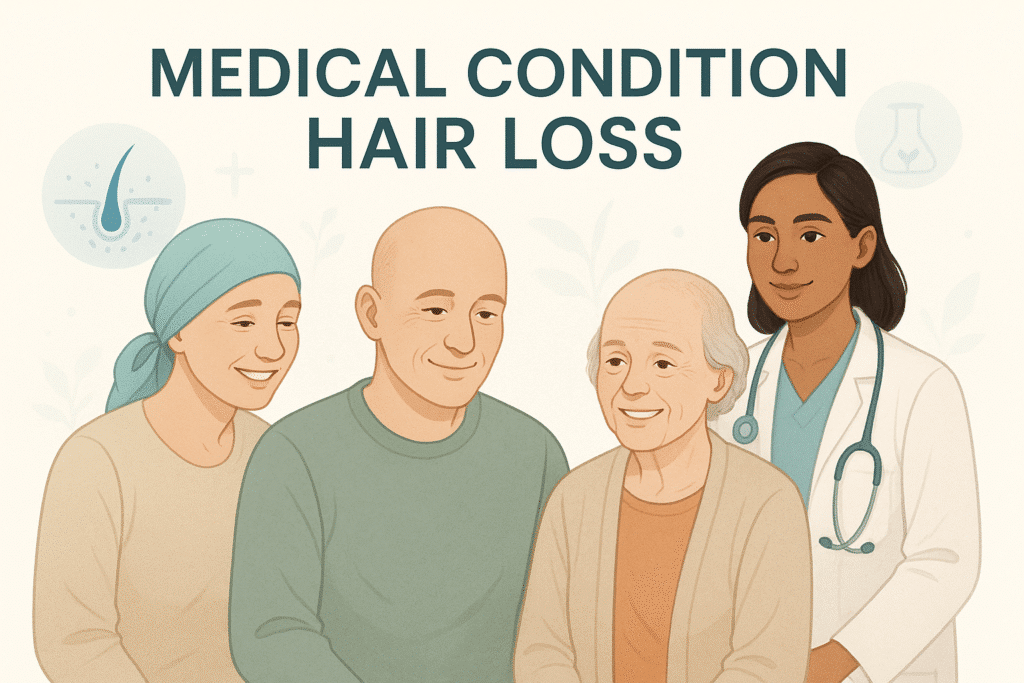Candida Hair Loss: How Yeast Overgrowth Damages Your Scalp
Discover how candida overgrowth on the scalp can cause hair loss, inflammation, and scalp damage—learn symptoms, prevention, and treatment options to restore healthy hair.

Hair loss can be a challenging side effect of various medical conditions and their treatments. This section provides comprehensive information about hair loss caused by underlying health conditions, including thyroid disorders, autoimmune diseases, cancer treatments, and other medical factors.
Many people experiencing hair loss due to medical conditions feel overwhelmed and uncertain about what to expect. Understanding the connection between your health condition and hair loss can help you prepare, cope, and make informed decisions about treatment options and hair restoration approaches.
Here you’ll find detailed guides on how different medical conditions affect hair growth, what to expect during treatment, timeline information for hair regrowth, and practical advice for managing hair loss during your health journey. Whether you’re dealing with chemotherapy-induced hair loss, thyroid-related thinning, or hair loss from other medical treatments, this resource aims to provide both medical insights and emotional support.
Remember that hair loss from medical conditions is often temporary, and working closely with your healthcare team can help optimize both your treatment outcomes and hair recovery process.
Discover how candida overgrowth on the scalp can cause hair loss, inflammation, and scalp damage—learn symptoms, prevention, and treatment options to restore healthy hair.
Discover how gallbladder removal can lead to hair loss due to metabolic changes and nutrient absorption issues, with practical tips for restoring healthy hair growth.
Many COVID-19 survivors experience significant hair loss 2-3 months post-infection, mainly due to telogen effluvium, affecting up to 25% of cases and typically resolving in months.
Discover how severe food poisoning can lead to delayed hair loss, known as telogen effluvium, typically occurring 2-3 months after recovery.
Discover the safety considerations of using saw palmetto after breast cancer treatment, including potential risks, side effects, and safer alternatives for survivors.
Discover why Ozempic may cause temporary hair loss during weight loss and learn effective strategies to protect your hair health while achieving your goals.
Discover why hair loss occurs after bariatric surgery, its timeline, causes, and effective solutions to support healthy hair during your transformative weight loss journey.
Discover how to choose the ideal wig after chemotherapy, understanding differences between human hair and synthetic options to boost confidence and comfort during treatment.
Discover essential tips and supportive solutions for managing chemo-induced hair loss, from wig caps to headwear options, promoting comfort and confidence.
Discover gentle, effective care tips for managing scalp sensitivity after chemotherapy to improve comfort and quality of life during treatment.